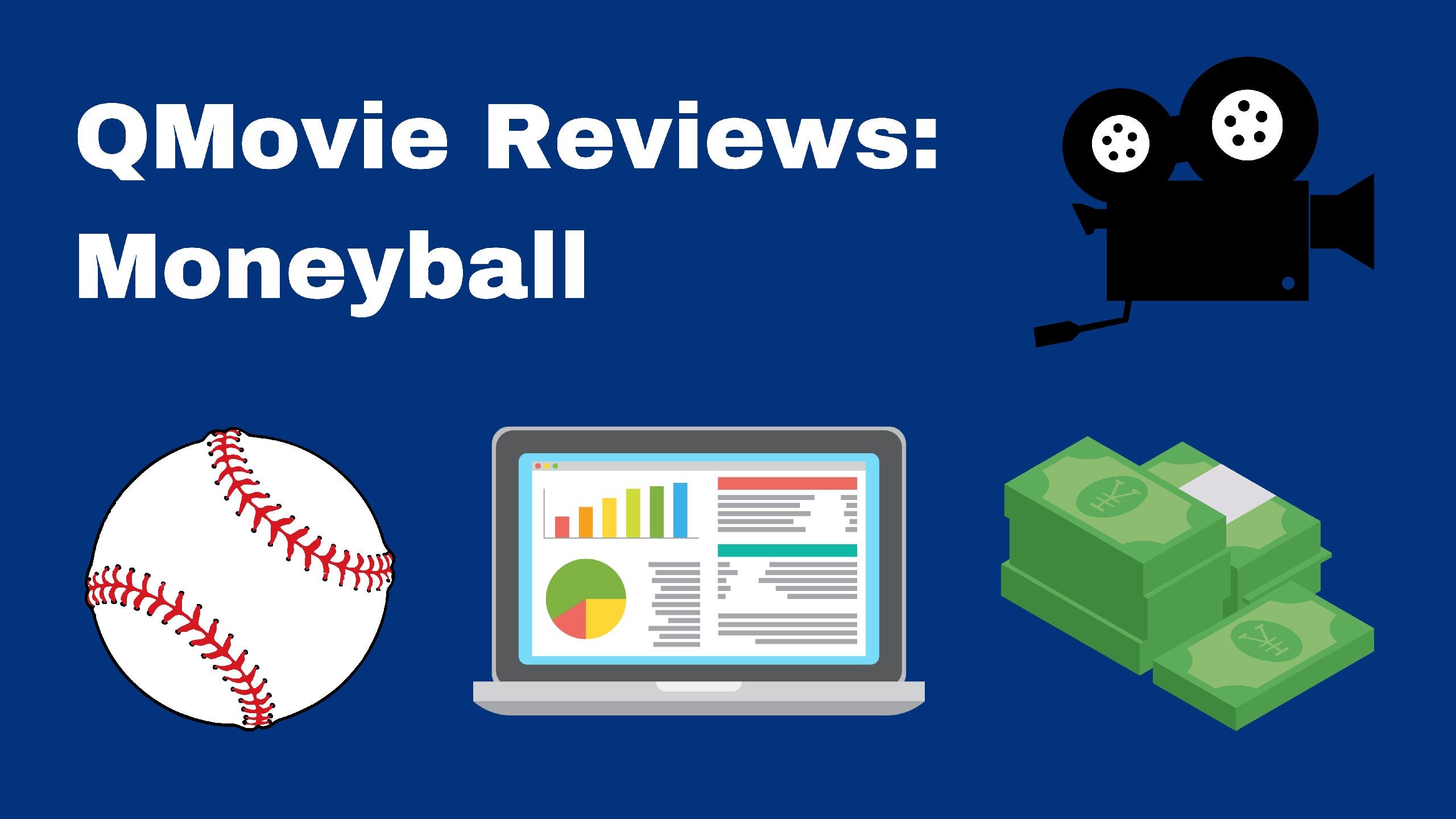Written by Connor Zahler:
Introduction
Writing for the QMSS student blog has granted me a lot of opportunities. One drawback, though, is that it has made me so analytically savvy that it can be hard to turn off QMSS-vision. Case in point: my friends and I were having a good old-fashioned movie night the other day. Someone proposed the classic flick Moneyball, and we all agreed; what’s not to love in a feel-good sports movie with some great performances? After we clicked play, though, I discovered—to my horror—that I was thinking about how the movie related to QMSS. This article is the fruit of my misguided attention. First, though, a word on our QMSS-style scale for movie analysis.
The QMSS Scale
The QMSS Scale is, like all scales, based on analytical rigorousness and not on starting with the acronym and working backwards. Our scale works across four dimensions:
Q: Quality. Is the movie actually good? Is it enjoyable to watch? Are there aspects of it that make it especially watchable or unwatchable?
M: Methodology. How does the movie display quantitative methods? Are the techniques sound, or, if not, are they called out? Does this movie create an unrealistic picture?
S: Sourcing. If the movie is based on real events, how closely does it stick to them? If not, how believable is the fake scenario that’s created?
S: Sociality. Does the movie tie back into an actual social issue that social scientists think about? Does it have something of substance to say?
Each of these is scored from 1 to 10 with a final score of 40. With that in mind, let’s see how Moneyball stacks up.
Quality
Moneyball is a good movie. Great, even. It’s star-studded in every sense of the word. The movie earned six Oscar nominations, including Best Picture. Bennett Miller, the director, has only made three movies, but all of them have attracted awards buzz. Brad Pitt and Jonah Hill headline the cast, both having done well enough to earn nominations for Best Actor and Best Supporting Actor. With Aaron Sorkin helping write the script, it’s easy to see how the movie is so enjoyable to watch. It’s a drama with comedic elements held together by rockstar performances and enough analytical intrigue to keep you thinking. I’m giving this a 9 out of 10.
Methodology
Sabermetrics sound like a term for describing the best knights. In reality, it’s the term for the rigorous, empirical measurement of baseball statistics. In recent years, it’s usually used in conjunction with heterodox techniques like WAR (wins above replacement) that seek to track a player’s value in a more holistic and complex way than simple measures like batting average. Moneyball focuses on how the Oakland Athletics used sabermetrics to find the best-value players and build a competitive team without a lot of money. While it can elevate Sabermetrics to a sort of magic at points, it’s generally pretty accurate in portraying how teams actually use this data. I’m giving it a 7 out of 10 for mostly being realistic.
Sourcing
This movie went through two layers of abstraction. First, there are the actual events of the Oakland A’s 2002 season. Then, there’s the book written about that season: Moneyball: The Art of Winning an Unfair Game. It was written by Michael Lewis, who also has written the book-turned-movie for both The Blind Side and The Big Short. In terms of departing from reality, Moneyball plays with the hiring dates of a couple of key players to exaggerate the moves that the team made. Some of the real-life people involved also accused it of unfairly portraying them to the detriment of their character. As for the book, the biggest difference is that Moneyball does not diverge from the events of the season to go in-depth to talk about the history of Sabermetrics. The movie would probably be less enjoyable if it did. Summing it up, the movie sticks closely to reality but can’t resist a few exaggerations and switches to make its point more clearly, putting it at a 6 out of 10.
Sociality
This is a tricky one. Of course, Moneyball isn’t about a social problem, unless you count being bad at baseball as one (you can make that argument in Detroit. Go Tigers!). On the other hand, Sports Management is part of the School of Kinesiology, and it uses the same techniques of other social sciences. While Moneyball might only be a subtle commentary on wealth inequality, it’s still a portrayal of the work that some social analysts do, work that millions of Americans see the impact of. I’m going to give it an 8 out of 10 for faithfully reflecting work that is at least adjacent to the social sciences, if not directly part of them.
Total
Moneyball earns a 30 out of 40. This score might downplay the actual quality of the movie—really, it’s quite good—but this scale isn’t just about quality. It’s about its relevance to the social sciences, as well as how it portrays quantitative methodology. Moneyball is still good for those aspects, too, with some caveats mentioned above. If you like baseball or Sports Management or just good movies, I would recommend giving it a watch. Thanks for tuning in to this first edition of QMovie Reviews!

